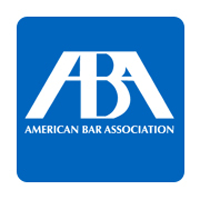ABA House to consider issues of public access and sex harassment

This year’s agenda for the ABA’s policy-making House of Delegates is not a particularly lengthy one, and there don’t appear to be any real bombshells among the resolutions. But as often happens when the House meets, there could be a few surprises.
One of the more notable measures that will come up for debate and an expected vote is Resolution 109, which would amend Rule 8.4 of the ABA Model Rules of Professional Conduct by adding a provision stating that it would be professional misconduct for a lawyer to “harass or discriminate on the basis of race, sex, religion, national origin, ethnicity, disability, age, sexual orientation, gender identity, marital status or socioeconomic status in conduct related to the practice of law.” The comment to the rule also would be amended to help lawyers understand how the prohibition against discrimination should be applied in the context of their practices.
Previously, the prohibition itself was contained in the comment, but that came to be viewed as inadequate.
“Changing the comment to a black-letter rule makes an important statement to our profession and the public that the profession does not tolerate prejudice, bias, discrimination and harassment,” states the report submitted to the House by the Standing Committee on Ethics and Professional Responsibility and several co-sponsors. “It also clearly puts lawyers on notice that refraining from such conduct is more than an illustration in a comment to a rule about the administration of justice. It is a specific requirement.”
The question on Resolution 109 will be whether there is consensus that it goes far enough. Some concerns along those lines were expressed about an earlier draft of the resolution by speakers at a public hearing held in February during the Midyear Meeting in San Diego.
The sharpest debate could break out over a seemingly esoteric resolution that even some members of the House might consider a case of inside baseball. Resolution 112 seeks to increase public access to privately developed codes and standards governing such things as consumer products, construction materials and methods, and other products and services that are subject to government regulation. Many of these standards are written by private standards development organizations that retain copyrights for them even when they are incorporated by reference into government regulations—in other words, referred to in the regulations but not set forth in their entirety. The SDOs often charge a fee to individuals and groups seeking access to the standards, whether in hard copy or online, on grounds that the income supports their work writing standards.
The Section of Administrative Law and Regulatory Practice is the lead sponsor of Resolution 112, which reflects a second try at developing a policy position on incorporation by reference that will garner enough support to pass in the House. A softer version was submitted to the House for consideration at the Midyear Meeting, but several sections asked that a new version be drafted. The Administrative Law Section withdrew its earlier resolution and formed a Task Force on Incorporation by Reference to consider the issue further. The task force developed the resolution that will come before the House in San Francisco.
“The idea of the resolution is that it’s a compromise between full-access advocates and groups that earn revenue from selling standards,” says Ronald M. Levin, a professor at Washington University School of Law in St. Louis who is a delegate representing the Administrative Law Section in the House. “We’re trying to accommodate everyone’s interests.”
But there is some question whether that approach is going to work. On the one hand, many SDOs oppose more public access to standards incorporated by reference into government regulations in the belief that individuals and groups won’t buy them if they’re available online.
On the other hand, however, advocates of more access, such as Carl Malamud, who heads up Public.Resource.Org, maintain that Resolution 112 doesn’t go far enough to assure public access. Malamud describes Resolution 112 as a “well-meaning” effort by the Administrative Law Section to respond to the problem of public access. But he says the new resolution actually is worse than the version that was considered in San Diego and complains that the composition of the task force was not broad enough.
“This is a fundamental rule of law issue” because public access is essential to democracy, says Malamud, who is seeking privileges to address the House when the debate on Resolution 112 comes up. Malamud also has distributed an informational booklet setting forth his position on the issue to about 120 key ABA members. (Oddly, the cover is a black-and-white photo depicting a 1908 meeting of the American Newspaper Publishers Association.) Explaining his strategy, Malamud says, “I want people to understand that this is not a whim.”
On the ceremonial side of the House’s business, Brown’s term as ABA president will end as she is succeeded by Linda A. Klein, the managing shareholder in the Georgia offices of Baker, Donelson, Bearman, Caldwell & Berkowitz. In addition, Deborah Enix-Ross will begin a two-year term as chair of the House of Delegates. She is senior adviser to Debevoise & Plimpton’s international dispute resolution group and based in New York City.
Follow along with our full coverage of the 2016 ABA Annual Meeting.



